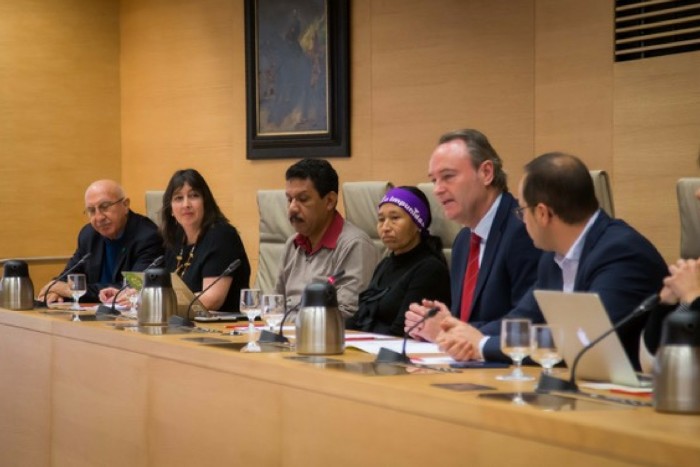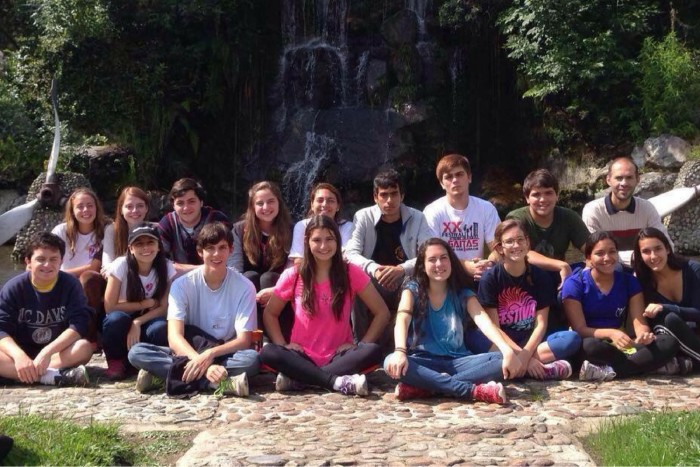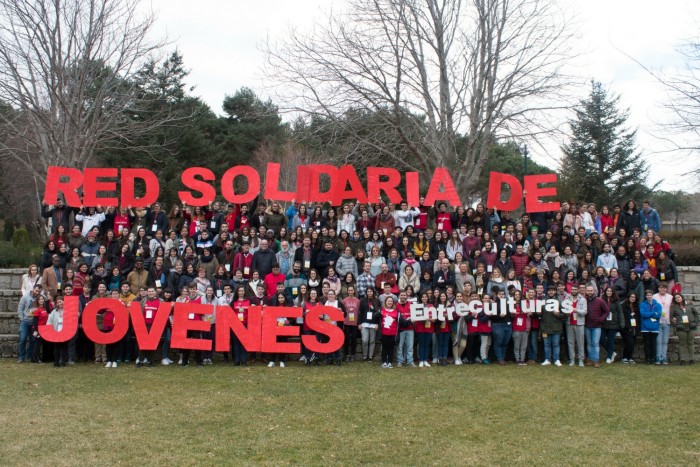
On March 13th and 14th Honduran activists Consuelo Soto, environmental defender and leader of the indigenous tribe Tolupán, and Pedro Landa, researcher, human rights defender and member of ERIC-Radio Progreso, visited Madrid. This visit took place within the framework of the intense advocacy and media work carried out by ALBOAN and Entreculturas-Fe y Alegría Spain regarding the political and social crisis that Honduras is facing following the elections held on November 26, 2017.
ALBOAN and Entreculturas organized a variety of meetings with political representatives to denounce, with first-hand information, the serious human rights violations which are currently taking place in Honduras with the objective of building support from Spanish institutions and society.
Pedro Landa told members of Congress about the democratic crisis which is building up in Honduras since the coup d´état in 2009 ,and which ultimately led to the reelection of president Juan Orlando Hernández after elections held in December last year. In addition, he denounced the brutality of the police and other serious human rights violations that took place during the peaceful demonstrations in the post-electoral period. To this end, he referred to the recent report issued on March 12th by the Office of the United Nations High Commissioner for Human Rights (OHCHR) in Honduras documenting at least 22 civilian deaths during the post-electoral period, of which 16 were violent deaths caused by shots fired by security forces.
Consuelo Soto denounced the activity of the extractive industries in Honduras, which carry out their projects without the consent of local communities and which provoke great harm to the population and the environment. She also reported her tough personal experience as a land rights defender in Honduras: “I believe that all human beings deserve to be respected. They killed my husband and everything remains in impunity. After that, I had to flee for my life, but I continue to defend the Earth. My people are fighting and I will continue to do the same”.
Landa and Soto also had the chance to meet with representatives from the Human Rights Office and the International Cooperation Directors of Latin America and the Caribbean of AECID (Spanish Agency for International Development Cooperation) under the Ministry of Foreign Affairs. Consuelo Soto y Pedro Landa ended their visit with an internal conference directed to Entreculturas staff and volunteers and with interviews with the press.
This visit forms part of the actions implemented by Jesuit and Ignatian-inspired institutions around the world, such as the Latin American Conference of Provincials, the Jesuit Conference of Canada and the U.S., Fe y Alegría, the Xavier Network, and Ignatian Solidarity Network, just to name a few of the many standing in solidarity with the people of Honduras.

